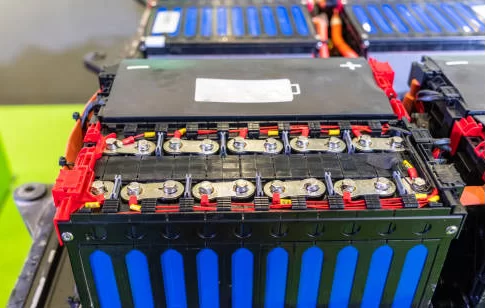The Advantages and Challenges of Hybrid Inverter with Battery Backup
In the modern era of energy consumption and management, the Hybrid Inverter with Battery Backup has emerged as a significant technological innovation. This system combines the functionality of an inverter with the added benefit of a battery backup, offering a reliable and flexible power solution.

One of the primary advantages of a Hybrid Inverter with Battery Backup is the enhanced energy independence it provides. In areas where the power grid is unreliable or prone to outages, having a battery backup ensures a continuous supply of electricity. This is especially crucial for critical infrastructure such as hospitals, communication towers, and emergency response centers. For instance, during a natural disaster or power grid failure, a hospital equipped with this system can continue to operate life-saving equipment without interruption.
Energy cost savings is another significant advantage. By allowing the integration of renewable energy sources like solar panels, the hybrid inverter can charge the battery during periods of excess generation. This stored energy can then be used during peak electricity demand times, reducing reliance on expensive grid power. For residential users, this can lead to substantial savings on monthly electricity bills over time.
The system also offers improved power quality. It can filter out power fluctuations and voltage spikes, providing a stable and clean power supply to sensitive electronic devices. This is particularly important for equipment that requires precise and consistent power, such as computers, medical devices, and industrial machinery.
Moreover, the Hybrid Inverter with Battery Backup contributes to environmental sustainability. By facilitating the use of renewable energy and reducing reliance on fossil fuel-based power generation, it helps lower carbon emissions and mitigate the impact of energy consumption on the environment.
However, along with these advantages come certain challenges. One of the major concerns is the initial cost of installation. The purchase and installation of a hybrid inverter, battery storage, and associated equipment can be quite expensive. This upfront investment may deter some potential users, especially in regions where the cost of traditional power sources is relatively low.
The lifespan and performance of the battery is another critical factor. Batteries have a limited number of charge-discharge cycles and their capacity gradually degrades over time. High temperatures, deep discharges, and overcharging can all shorten the battery’s lifespan. Regular maintenance and replacement of batteries can add to the overall cost of the system.
Another challenge lies in the complexity of the system. It requires proper sizing and configuration based on the energy requirements of the load, the available renewable energy source, and the capacity of the battery. Incorrect sizing can lead to inefficient operation or insufficient power during outages. Additionally, the integration of multiple components and the need for advanced control systems make the installation and troubleshooting more complex, requiring skilled technicians.
Furthermore, there are regulatory and safety considerations. Different regions have varying regulations regarding the installation and operation of battery backup systems. Ensuring compliance with these regulations can be a cumbersome process. Safety measures such as preventing overheating, electrical shorts, and proper handling of batteries are essential to avoid potential hazards.
In conclusion, the Hybrid Inverter with Battery Backup holds great promise for providing reliable and sustainable power. While it offers numerous advantages such as energy independence, cost savings, and improved power quality, it also faces challenges related to cost, battery performance, system complexity, and regulatory compliance. Addressing these challenges through technological advancements, economies of scale, and supportive policies will be crucial for the widespread adoption and successful implementation of this innovative power solution.
